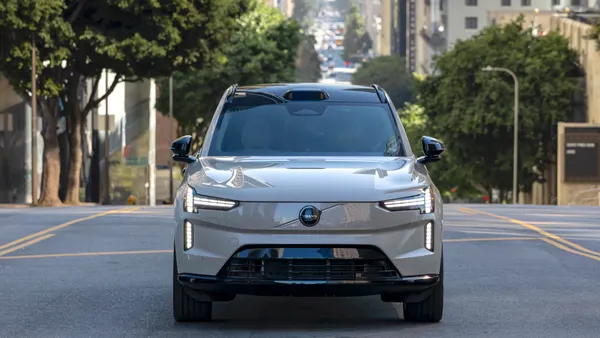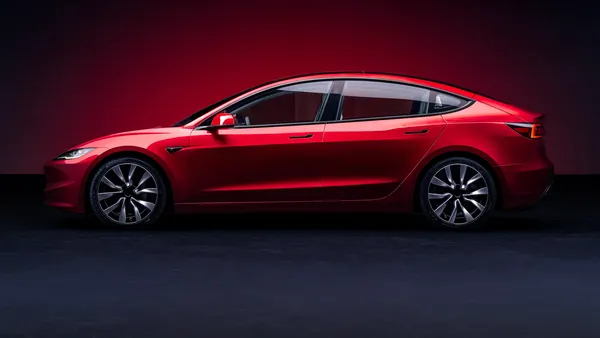Editor's note: This story is part of the WardsAuto digital archive, which may include content that was first published in print, or in different web layouts.
Johnson Controls Inc. has plenty at stake as General Motors Corp. rolls out its Saturn Outlook, GMC Acadia and Buick Enclave cross/utility vehicles.
Based in Milwaukee, WI, JCI served as interior integrator for GM's new CUVs and supplies the seats, overhead systems, electronics, battery and cargo hold, while integrating interior trim components from other suppliers. For instance, Cadence Innovation produces the instrument panel and center console, integrating JCI's instrument clusters.
The CUVs stand among the few GM vehicles to benefit from the auto maker's on-again, off-again strategy to outsource vehicle-interior development to key suppliers such as JCI, Lear Corp. and Magna International Inc.'s Intier Automotive.
GM announced the strategy in 2001 as a way to ensure better fitting, more “harmonious” interiors that appeal to consumers under the theory that suppliers specializing in interiors are best suited to manage complete vehicle programs.
But the strategy was ditched in late 2004 as the auto maker determined it needed to regain more control in interior development. “We didn't achieve what we expected to achieve,” Bo Andersson, GM vice president-global purchasing and supply chain, told Ward's at the time.
But GM already had hired JCI to play the role of full integrator for the new CUVs before deciding to scale back on the idea.
The '07 Outlook and Acadia now are in production, and the Buick Enclave version arrives in spring.
GM's Delta Township, MI, assembly plant produces the vehicles.
Christopher Parker, product manager-complete seat for JCI, says his company began the CUV interior program in 2004.
“I think it's worked out great,” Parker tells Ward's, adding the program has been successful and profitable for JCI.
Still, he says JCI has no other active full interior integration programs with GM, making the Outlook, in a sense, a one-of-a-kind vehicle in GM's portfolio that reflects a bygone strategy to outsource interiors.
JCI played a similar, but less-extensive, role in developing seats and interior components for GM's short-lived minivans, including the Chevrolet Uplander and Saturn Relay, which end production in Doraville, GA, in 2008.
GM's CUVs are the first production vehicles to employ JCI's innovative Open Seating architecture, which allows second- and third-row seats to fold flat, providing a level load floor for the entire vehicle, except for the first-row seats.
The second-row “Smart Slide” seats of GM's CUVs move fore and aft up to 3.9 ins. (9.9 cm). The third-row seats (configured in a 60-40 split) also have active bolsters in the seat back that pivot outward as the back folds down, providing a flatter surface and freeing up additional storage space.
The third-row seats, when folded flat, occupy a relatively lean 7.2 ins. (18.3 cm) of space.
Producing seats and overhead systems for the GM CUVs is Bridgewater Interiors, a minority-owned joint venture between JCI and Epsilon Technologies LLC.
Meanwhile, Beda Bolzenius, JCI vice president and president-Interior Experience, says at a press conference the supplier has no intention of leaving the interiors sector.
As competitors Lear and Collins & Aikman Corp. and others downsize their operations in certain interior product sectors, Bolzenius says JCI will not follow suit.
“While others are exiting the interior sector, we remain committed to it,” he says, adding he expects the supplier to continue growing not only overseas and in low-cost regions but also in North America.
Lear has said its pursuit of full-service capability (to support GM's interior integrator strategy, for instance) caused distress for Lear as the supplier became too big.
Both Lear and bankrupt Collins & Aikman are in the process of closing or selling dozens of plants worldwide.










